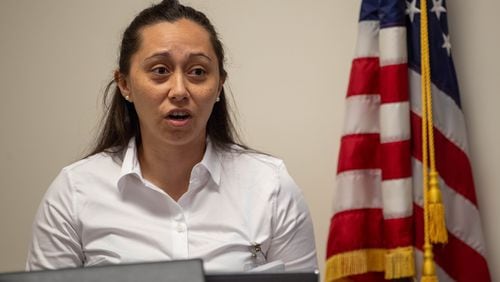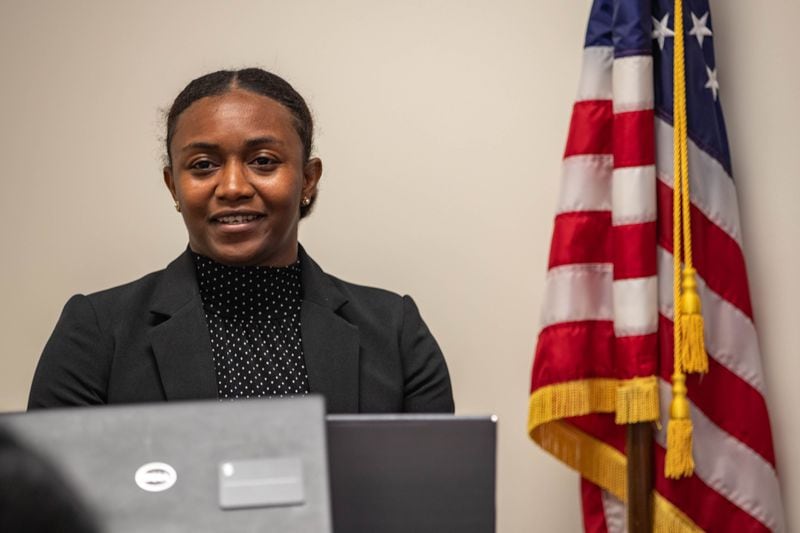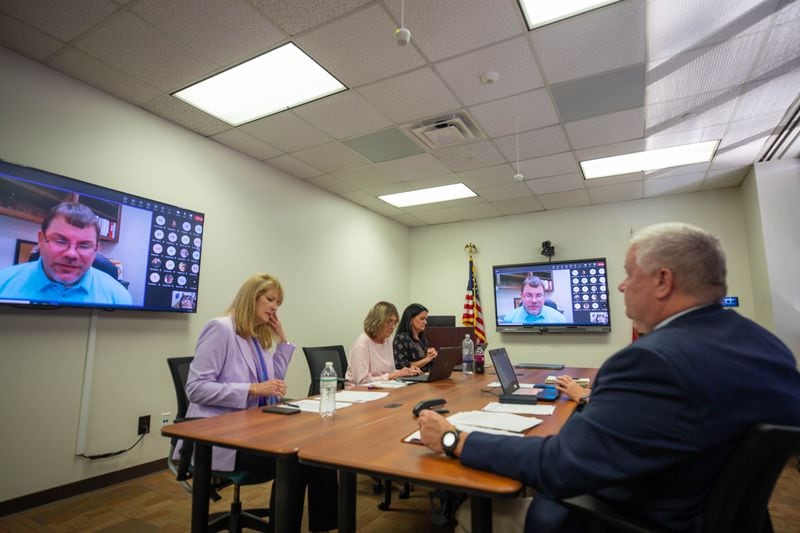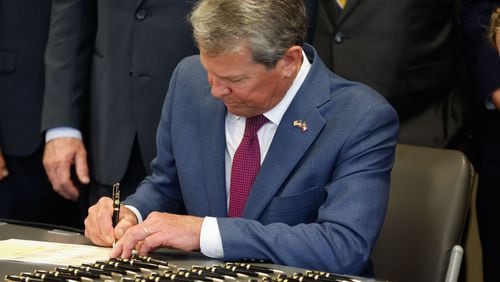The Georgia Professional Standards Commission continued its efforts Thursday afternoon to rid teacher preparation rules of words like “diversity” and “equity,” with members voting from behind their screens as advocates spoke out against the changes in person.
Commissioners unanimously voted to amend language in lessons that prepare public school teachers of political science, math, history, geography, and economics. One revision replaces “diversity” with differences,” “biases” with “preconceptions,” “equity” with “fairness.” The changes — which commissioners have repeatedly insisted aim to remove “ambiguous terms” that “may have taken on multiple and unintended meanings” — will go into effect on Aug. 15.
The rules outline the standards that dozens of colleges and other programs that train Georgia’s future K-12 teachers and other educators must meet to earn and maintain approval from the state commission. The commission, composed of 18 members appointed by the governor, first unanimously approved wording changes in May, saying that they held the vote because the University System of Georgia had requested clarification on teacher preparation rules.
Credit: Katelyn Myrick
Credit: Katelyn Myrick
Thursday’s vote affected 47 education programs, making it the broadest sweep of changes among this summer’s committee meetings.
Darian Burns, a legislative and public policy analyst at the Southern Education Foundation, urged commissioners to reject the changes during public comments ahead of the vote. The foundation is an Atlanta-based education and civil rights organization.
“The proposed changes to the educator preparation rules do not ensure that our future educators will be well prepared to lead in Georgia’s classrooms, where nearly 60% of the student population are students of color,” Burns said.
Matt Arthur, the executive secretary of the commission, declined to comment on the vote. Commission Chairman Brian Sirmans has previously said that teachers colleges are still expected to ensure educators are “well equipped to address the learning needs of all students.”
Mikayla Arciaga, who is helping coordinate opposition to the revisions, does not know why the committee voted Thursday on so many programs at once. An employee at the Intercultural Development Research Association, a nonprofit that aims to achieve equal educational opportunity, Arciaga said ahead of the meeting that she suspects that “they didn’t want to drag this out any further, because we have pretty much established that we are not going to go away.”
Credit: Katelyn Myrick
Credit: Katelyn Myrick
Commissioners tuned in virtually to the meeting, which was beset by technological issues, while public comment was only available in person. Seven people lodged public comments ahead of the vote, but only two spoke at the meeting, including Arciaga, who said she only learned Tuesday that public comment would be available.
Teachers and advocates have passionately opposed the changes, arguing that they further an ongoing crusade against equity efforts in schools, particularly when considered against Georgia’s divisive concepts law, which limits how K-12 teachers can discuss race. Some worry that the rule changes will dissuade individuals from pursuing careers in education; others fear they foreshadow further limitations on what schools can teach.
Arciaga believes that the changes will not only affect K-12 classrooms, but may be a bellwether for curbing DEI efforts at the higher education level.
Organizers plan to keep speaking out against the linguistic changes, with the ultimate goal of ensuring that DEI resources remain available, even if they are not included in traditional teacher preparation programs, Arciaga said in anticipation of Thursday’s unanimous vote.
The committee will meet again virtually on Aug. 10.
About the Author








